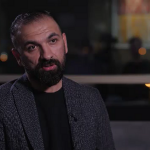Chinese President Xi Jinping has said that “Hong Kong has been reborn from the ashes” as he visited the city – his first trip outside mainland China in nearly 900 days.
Xi was visiting the city ahead of the 25th anniversary of the handover of Hong Kong from the UK to China, on 1 July.
The territory has seen huge changes since the last time Xi made a similar trip, in 2017. The city was gripped by mass protests, sometimes violent, starting in summer 2019.
The next year Beijing imposed a sweeping national security law on Hong Kong, which the British government described as “grave and deeply disturbing”.
Scores of pro-democracy advocates and politicians have been arrested under the law.
Xi arrived in the city on a high speed train and was greeted by supporters waving Chinese and Hong Kong flags.
“I’m very happy to be in Hong Kong,” Xi said on arrival.
Hong Kong: Inquiry after iconic 80ft floating restaurant capsizes at sea
Govt urged to carry out audit of UK assets of Hong Kong and China officials linked to human rights violations
Hong Kong cardinal, 90, in court accused of breaking China’s national security law
“It’s been five years since I last visited, and in the past five years I’ve been paying attention to and thinking about Hong Kong.”
Later, the Chinese president said that Hong Kong had been “reborn from the ashes” with “vigorous vitality”.
“As long as we stick to the ‘one country, two systems’ framework, Hong Kong will certainly have a brighter future and will make new and bigger contributions to the great rejuvenation of the Chinese people,” he said.
‘One country, two systems’ is the framework in which Hong Kong was returned to China 25 years ago, with the territory promised that its way of life would remain unchanged for 50 years.
The Foreign, Commonwealth and Development Office hasn’t commented about the anniversary of the handover so far but has regularly expressed concern about developments in Hong Kong.
In early May, the UK joined the G7 for a collective statement expressing “grave concern over the selection process for the Chief Executive… as part of a continued assault on political pluralism and fundamental freedoms.”
In March, the government backed British judges who resigned from serving in Hong Kong’s top courts due to an erosion of democracy and liberty caused by the new security law.






















